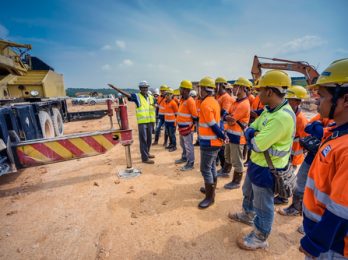English for construction workers is a powerful tool for company owners. Because the construction industry is one of the largest employers of ESL employees (those who speak English as a Second Language). It also is among the top industries with the most work-related accidents. So what are construction companies doing to avoid these accidents? Well, for starters there are mandatory OSHA trainings, certifications and safety trainings that help minimize accidents at work. But can employers take any steps beyond what is required, to prepare for disaster relief projects?
Read more
English For Construction Workers – Before Disaster Strikes






